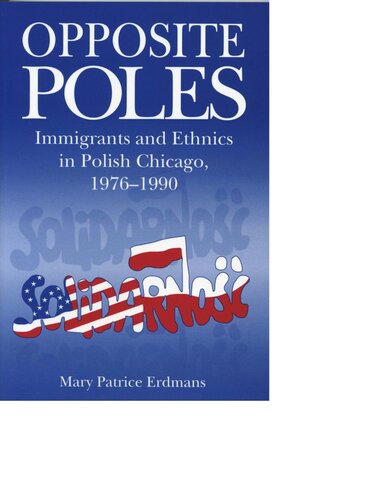

Most ebook files are in PDF format, so you can easily read them using various software such as Foxit Reader or directly on the Google Chrome browser.
Some ebook files are released by publishers in other formats such as .awz, .mobi, .epub, .fb2, etc. You may need to install specific software to read these formats on mobile/PC, such as Calibre.
Please read the tutorial at this link: https://ebookbell.com/faq
We offer FREE conversion to the popular formats you request; however, this may take some time. Therefore, right after payment, please email us, and we will try to provide the service as quickly as possible.
For some exceptional file formats or broken links (if any), please refrain from opening any disputes. Instead, email us first, and we will try to assist within a maximum of 6 hours.
EbookBell Team

4.8
34 reviewsOpposite Poles presents a fascinating and complex portrait of ethnic life in America. The focus is Chicago Polonia, the largest Polish community outside of Warsaw. During the 1980s a new cohort of Polish immigrants from communist Poland, including many refugees from the Solidarity movement, joined the Polish American ethnics already settled in Chicago. The two groups shared an ancestral homeland, social space in Chicago, and the common goal of wanting to see Poland become an independent noncommunist nation. These common factors made the groups believe they ought to work together and help each other; but they were more often at opposite poles. The specious solidarity led to contentious conflicts as the groups competed for political and cultural ownership of the community.
Erdmans's dramatic account of intracommunity conflict demonstrates the importance of distinguishing between immigrants and ethnics in American ethnic studies. Drawing upon interviews, participant observation in the field, surveys and Polish community press accounts, she describes the social differences between the two groups that frustrated unified collective action.
We often think of ethnic and racial communities as monolithic, but the heterogeneity within Polish Chicago is by no means unique. Today in the United States new Chinese, Israeli, Haitian, Caribbean, and Mexican immigrants negotiate their identities within the context of the established identities of Asians, Jews, Blacks, and Chicanos. Opposite Poles shows that while common ancestral heritage creates the potential for ethnic allegiance, it is not a sufficient condition for collective action.